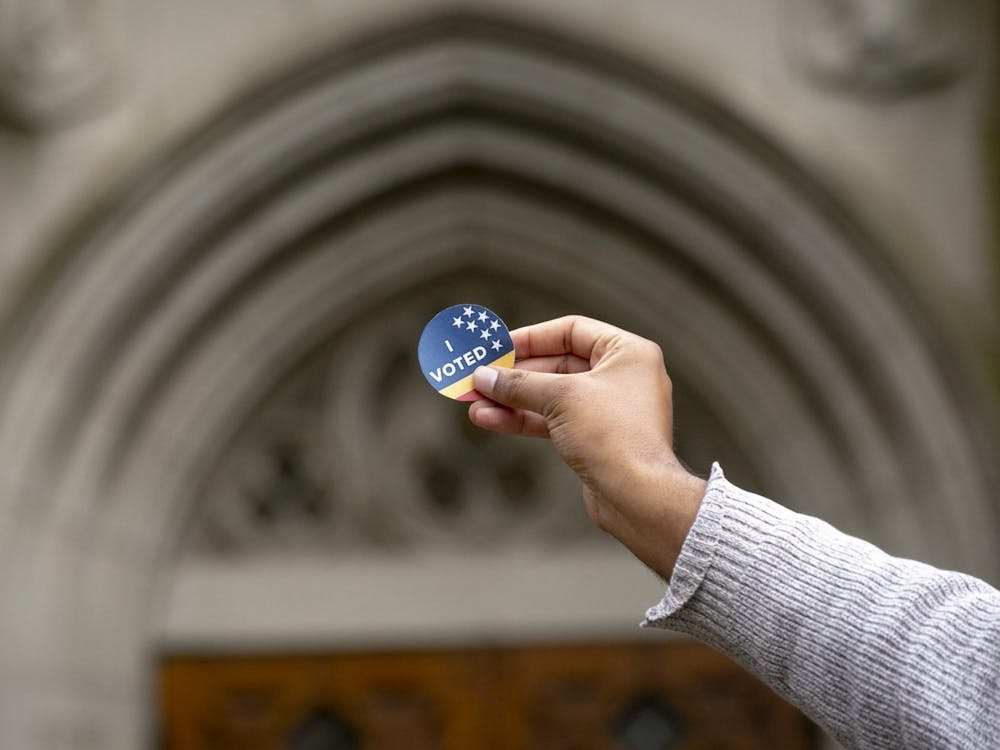On April 28, registered voters in North Carolina will be able to cast the first in-person ballots in the 2022 statewide primary elections. The voting period, which lasts until Election Day on Tuesday, May 17, follows a two-month delay issued by the North Carolina Supreme Court last December.
Several races are currently on the ballot: the U.S. Senate and House of Representatives, the N.C. General Assembly, the N.C. Supreme Court and N.C. Court of Appeals.
Following Senator Richard Burr’s decision to not seek reelection, one Senate seat is open. All 14 representative positions are open, after the state gained an additional U.S. House seat due to an increase in state population on the 2020 census. On the local level, some municipal and school board elections will also take place.
How can students register to vote?
The statewide voter registration deadline for the statewide primary is April 22. Those with an existing North Carolina driver’s license or an NCDMV-issued ID can register online.
First-time North Carolina voters may print out voter registration applications and submit them by mail to their county board of elections.
Students living on campus should pay special attention to the residential and mailing addresses they write on the registration form. Students living on West Campus should use “1 Duke University West Campus” as their residential address and their Duke Box Number as their mailing address, according to a sample ballot from Duke Votes. Students residing on East Campus should use “1 Duke University East Campus” as their residential address and their Duke Box Number as their mailing address.
Those that miss the April 22 deadline can register in person at their polling place if they vote early. Same-day registration will be available throughout the early voting period from April 28 to May 14. In addition to completing an application, a voter must show an identifying document providing proof of residency, such as an NC driver’s license, a utility bill or a photo ID from a government agency.
College students must provide their university ID and one form of additional documentation for same-day registration during early voting. This documentation can be either “any document originating with the educational institution containing the student’s name and on-campus housing address or facility name” or a current roster prepared by the university sent to the county board of elections office, according to the North Carolina State Board of Elections’ website.
Where are the nearest polling locations?
A master list published by the Durham County Board of Elections lists over 50 election-day polling locations within the area.
During early voting, the two closest polling locations to Duke are Eno River Unitarian Universalist Fellowship and Durham County Main Library.
On Election Day, registered voters must vote at their assigned polling site. Voters can find their Election Day polling place by searching their address into the Polling Place Search. Students registered at the 1 Duke University West Campus residential address will vote at W I Patterson Recreation Center. Students registered at the 1 Duke University East Campus residential address will vote at the George Watts Elementary School.
Early voters can choose from eight early voting locations. No early voting locations are on Duke’s campus.
For registered North Carolina voters who would prefer to vote by mail, absentee voting began March 28. A voter must request a mail-in ballot and complete and sign it in the presence of a witness. The voter can then either mail it to the county board of elections by Election Day or drop it off at an approved polling site during the early voting period.
Why should students vote?
In the 2018 midterms, 58.5% of Duke students took advantage of early voting at the Brodhead Center precinct. This figure was a significant increase from 2014, in which only 19.3% of the student body cast their ballots. Duke earned a third-place voter turnout ranking in a study of 23 North Carolina schools, according to a 2019 National Study of Learning, Voting and Engagement report.
Sophomore Eleanor Ross, founder and president of the Durham-based civic engagement club Kidz Vote, believes in the value of the youth vote to drive political change.
“Students in university are some of the lowest voting demographics, especially once they leave university, and it's really an untapped market that politicians really should pay more attention to,” she said.
“This is our future that we're deciding and we're changing. You know, we complain about the way things are, but if you're not voting, you aren't taking any action to change the way things are,” she added. “So voting is a fundament of our democracy.”
Why was the election delayed?
The Court issued this delay in light of multiple rounds of rejected North Carolina congressional maps due to partisan gerrymandering concerns. A panel of nonpartisan redistricting experts drew a new state congressional map in late February, which will be used in the primaries.
Get The Chronicle straight to your inbox
Signup for our weekly newsletter. Cancel at any time.

Sevana Wenn is a Trinity sophomore and features managing editor of The Chronicle's 118th volume.

